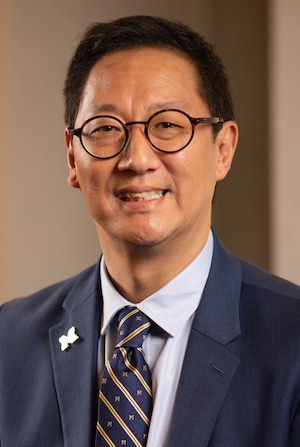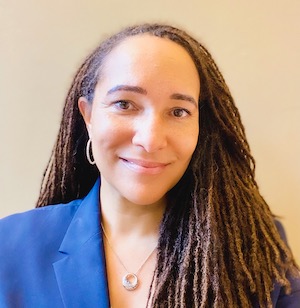
One of the great strengths of the University of Michigan is its commitment to holding open its doors to all people.
Through the contributions of thousands of faculty and staff and hundreds of thousands of students over more than two centuries, we have built a university that is known for a multiplicity of people, heritages, academic disciplines, and scholarly pursuits.
We aspire to achieve the highest levels of excellence at the university, and that dedication to academic excellence is inseparable from our commitment to diversity, equity and inclusion.
We cannot be excellent without being diverse in the broadest sense of that word, and we must also ensure that our community allows all individuals an equal opportunity to thrive.
Our work in DEI 1.0 was an important step in our journey, but it is far from the end of our commitment. Many students, faculty and staff say the campus climate is better but we still have work to do. We will continue to assess our progress, test new ideas and have difficult conversations about tough issues. We will listen, and we will learn as we move forward—together in DEI 2.0.
We have much more to do before our community is as diverse and welcoming as we envision. I remain committed to DEI being a major focus of my presidency, and I look forward to joining you as this important work continues into DEI 2.0.
I am proud that we have incorporated diversity, equity and inclusion into many aspects of our operations and mission. Thanks to our initial Diversity, Equity and Inclusion Strategic Plan and the efforts of many people, these values are built into our operations and activities. This spans all that we do—teaching and learning, research, patient care, budgeting, hiring, student recruitment and campus events, activities, and service. DEI professional development programs are in place for executive units, schools and colleges.
Most important, our DEI work is bolstered by a community-wide commitment to being a better university for everyone we serve.
I want to highlight the critical work of our DEI Leads who have continually sought to make our university better. They are the lifeblood of this process and the work could not get done without them.
I am ever so grateful to be working together with you to move our university forward to achieve our highest aspirations for excellence through diversity, equity and inclusion. Thank you for all that you do.
Sincerely,
Santa J. Ono
President

The University of Michigan is known nationally as a leader and model for its long-standing commitment, work, and impacts on diversity, equity, and inclusion (DEI) in higher education. And we know from a now large body of scholarship (including research led by our own U-M faculty, students, and alumni) that diverse and inclusive environments enhance innovation, effective problem solving, and excellence.
But being a leader doesn’t mean that we have addressed all challenges and achieved our ideals for the type of diverse, inclusive, and equitable university that we want to be and that is critical to our present and future excellence. What is does mean is that we have demonstrated a commitment to the deep, strategic, and on-going work necessary for this cultural transformation.
Our efforts and accomplishments in our inaugural DEI Strategic Plan journey (DEI 1.0)—supported by staff, faculty, students, alumni, community partners and affiliates—is a demonstration of this commitment. Our leadership is reflected in our campus’ unique and distinct approach to advancing DEI in our planning and implementation process—requiring both commitment and accountability around goals informed centrally and through the knowledge, perspectives, and expertise across our campus’ schools, colleges, and units.
As a result, our DEI 1.0 efforts connected to all facets and levels of our academic institution—teaching and learning, research and scholarship, professional practice, programming, campus climate, recruitment, admissions and hiring, and retention. It also encompassed our infrastructure development and community engagement. Embracing and infusing the values of DEI at all levels of our institutional systems and functions—as part of core mission work—is the only way to create broad-based and sustained cultural change.
I am proud to present this DEI 1.0 strategic plan evaluation report to our campus community and beyond as a representation of the collective work of so many campus members and our affiliates and partners. The efforts, outcomes, and accomplishments of the DEI 1.0 period show us that we have made important progress as a community. And we moved the needle forward even in the face of some of the most immense challenges to our society’s health and well-being in modern times, given the onset of the COVID-19 pandemic and the new and renewed attention to historical and contemporary systems of racism and social inequality impacting minoritized communities, groups, and individuals—here at U-M, nationally, and globally.
The efforts and lessons learned through our DEI 1.0 process also tell us that there is still more work to be done to realize our goals. As such, this evaluation report is both a reflection on our progress and pledge to our community. It is one important step in our journey, but it is far from the end of our commitment. We will continue to build on successful and promising outcomes, make refinements, test new ideas, assess our progress, and have the difficult conversations about tough issues that are necessary for progress. We will listen, and we will learn as we move forward—together.
I want to thank the many thousands of individuals who make our community so special. I am particularly grateful to our DEI Leads—skilled and experienced leaders across our campus units who are steadfast about making the University of Michigan stronger through efforts to coordinate, educate, communicate, build collaborations and partnerships, and break down barriers and divisions. This community and its collective leadership capacity is one of the innovations of our DEI Strategic Plan and yet another Michigan model reflecting the interconnection of diversity and excellence.
I hope all who review this report and site draw strength and encouragement in learning about the impacts resulting from so many across our campus and beyond working toward a common goal for change. Going forward, I am excited and honored to co-lead and collaborate with other campus leaders, community members, alumni, and partners and affiliates to build and expand on our accomplishments and lessons learned toward even greater positive impact—for our campus and society.
Sincerely,
Tabbye M. Chavous
Vice Provost for Equity & Inclusion and Chief Diversity Officer

